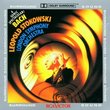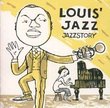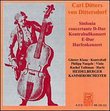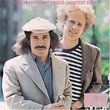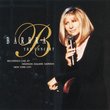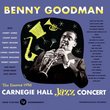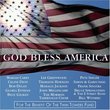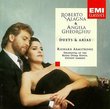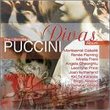| All Artists: Johannes Brahms, Pyotr Il'yich Tchaikovsky, Albert Coates, London Symphony Orchestra, Artur Rubinstein Title: Rubinstein Collection, Vol. 1 Members Wishing: 1 Total Copies: 0 Label: RCA Original Release Date: 1/1/2029 Re-Release Date: 8/8/2000 Album Type: Original recording remastered Genre: Classical Styles: Forms & Genres, Concertos, Historical Periods, Modern, 20th, & 21st Century, Instruments, Keyboard, Symphonies Number of Discs: 1 SwapaCD Credits: 1 UPC: 090266300129 |
Search - Johannes Brahms, Pyotr Il'yich Tchaikovsky, Albert Coates :: Rubinstein Collection, Vol. 1
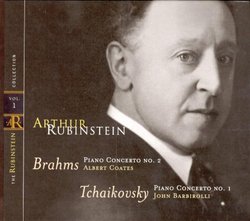 | Johannes Brahms, Pyotr Il'yich Tchaikovsky, Albert Coates Rubinstein Collection, Vol. 1 Genre: Classical |
Larger Image |
CD DetailsSimilar CDsSimilarly Requested CDs
|
CD ReviewsRubinstein in First Recordings of Favorite Concertos Hank Drake | Cleveland, OH United States | 08/14/2000 (3 out of 5 stars) "Arthur Rubinstein's earliest recordings of two of his favorite piano concertos are preserved here. Rubinstein, like a fine wine, improved with age, at least in his performances of large scale works like these. This CD contains his weakest performances of these works, despite the legendary pianist's patented brio. Both the Brahms and Tchaikovsky Concertos on this disc are marred by rushed tempi, technical lapses, and overpedaling. Making recordings during the 78-rpm era was a more challenging process for performers than it would later be. Since there was no tape splicing, in the event of a technical slip, either the entire 4 1/2 minute side was re-recorded, or mistakes were left in the finished product. The balance between piano and orchestra also leaves much to be desired. For those wishing to hear Rubinstein in these concertos, I would recommend his 1958 recording of the Brahms with Krips, and the 1963 Tchaikovsky with Leinsdorf. The sound restoration is excellent--surface to noise has been reduced, but without excessive filtering." Great vintage Ruby Kevin McManus | Milan, MI Italy | 03/15/2001 (5 out of 5 stars) "Brahms' concertos were Rubinstein's favorite for many years. He played them for most of his life, and he thought he was as close to them as he was to Chopin's Nocturnes or Mazurkas. He recorded each concerto three times, and in any of these recordings you can fill a real "full-immersion", a great sympathy between the composer and the pianist. Rubinstein's concept of these two masterpieces is slightly "anti-German": Ruby doesn't believe in monumental structures, he believes in music as an expression of deep and intimate emotions, and he even shows that in big pieces like these. His four recordings of the Second Concerto show three different kinds of approach: youthful and firing freshness in this 1929 recording, powerful and optimistic energy in the 1952 and 1958 recordings with Munch and Krips, crepuscular melancholy in his last achievement with Ormandy. Yet, such different readings have something in common: humanity and love for music. Here you get an old fashioned Rubinstein, a Rubinstein that does not actually look like himself; but his beautiful sound and his spontaneous musicianship are already there.Tchaikovsky's most popular Concerto was an absolute must for pianists in the 30's. This Rubinstein-Barbirolli recording was unmatched for many years, until people stopped listening to music and started listening to notes; then Horowitz and Richter became the favorite. But if you're not too involved in keyboard-killing or cold exegesis, this 1932 performance will sound extremely good."
|


